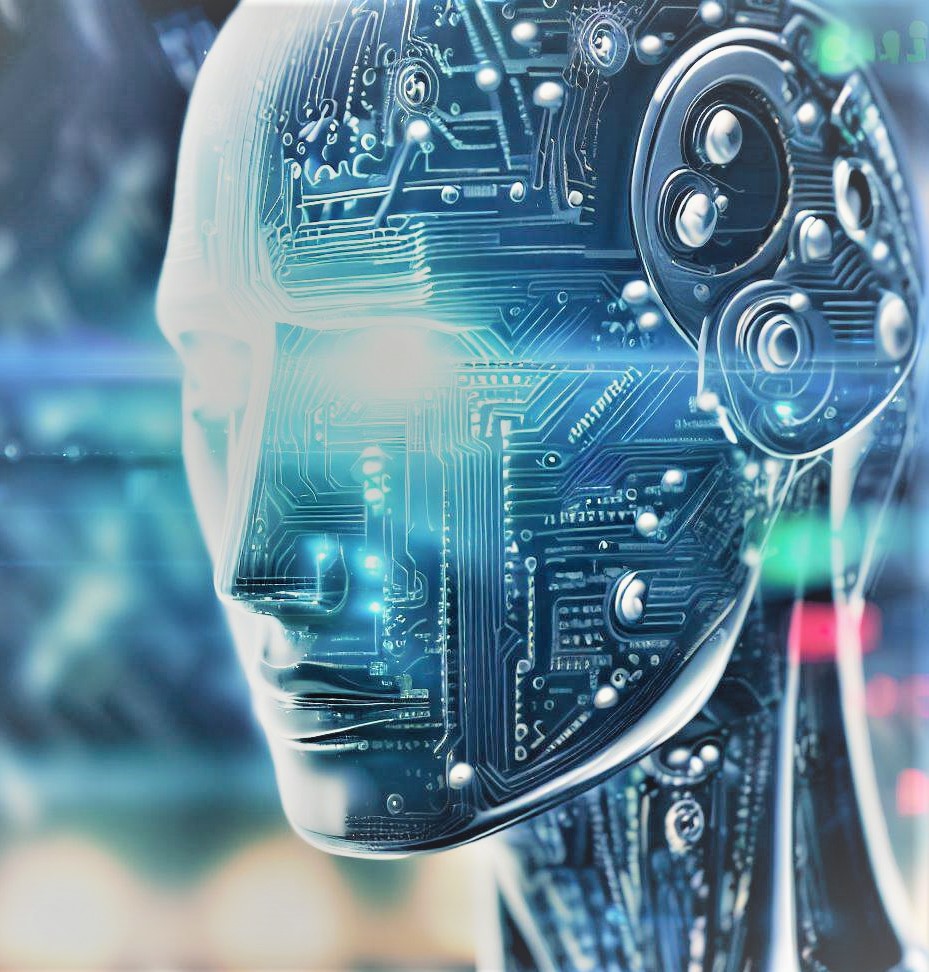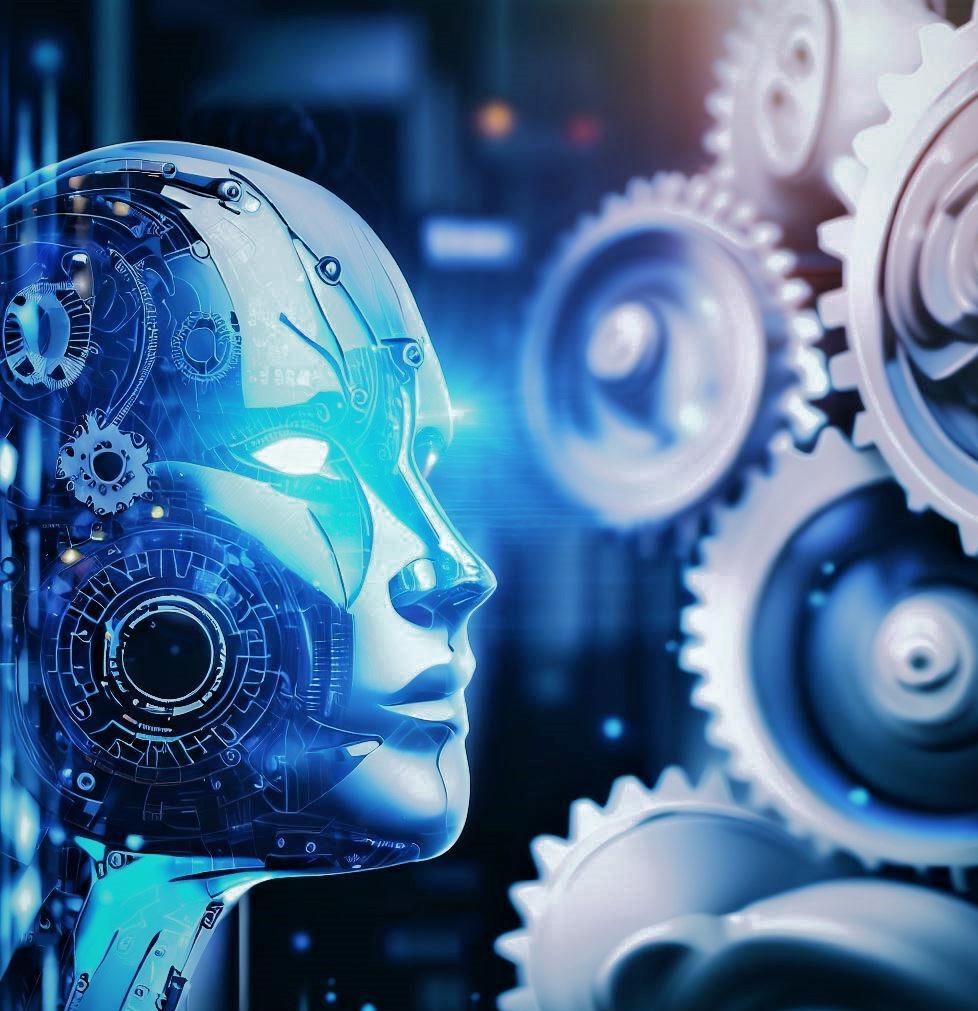Has Artificial Intelligence Gone Too Far?
Introduction
The field of artificial
intelligence, more frequently abbreviated as AI, has quickly established itself
as one of the most revolutionary technological developments of the 21st
century. With its ability to learn, reason, and make decisions, AI has found applications
across various industries, ranging from healthcare and finance to
transportation and entertainment. While the advancements in AI have led to
numerous positive outcomes, concerns regarding the ethical implications of AI’s
progress have also arisen. This article delves into the question: has
artificial intelligence gone too far?
The Impact of AI on industries
AI has revolutionized
industries by introducing automation, optimizing processes, and enhancing
productivity. In sectors like manufacturing and logistics, AI-powered robots
and autonomous systems have streamlined operations, leading to increased
efficiency and reduced costs. Moreover, AI has played a crucial role in
healthcare, aiding in diagnosis, drug development, and personalized treatment plans,
thus saving lives and improving patient outcomes.
Ethical Concerns Surrounding AI
Despite the evident
benefits, the rapid integration of AI into various aspects of life has raised
ethical concerns. Privacy and data security have become paramount issues as AI
applications collect and process vast amounts of personal information.
Additionally, AI algorithms can be biased, perpetuating discrimination in
decision-making processes. The fear of job displacement due to automation has
also led to discussions about ensuring equitable opportunities in the
workforce.
Perplexity in AI Development
The development of AI
technology brings about perplexity in terms of balancing progress and
responsibility. While AI offers unprecedented potential, its deployment must be
carefully regulated to avoid unintended consequences. Striking the right
balance between AI advancement and ethical considerations remains a significant
challenge for researchers, developers, and policymakers.
Burstiness of AI Applications
AI’s burstiness refers to
the rapid acceleration of its applications in various domains. Although
breakthroughs in AI have led to remarkable achievements, such as natural
language processing and computer vision, they have also triggered unforeseen
societal impacts. Controlling the rate of AI implementation and managing its
consequences have become critical priorities.
Positive Aspects of AI Advancements
Despite concerns, AI
advancements have shown immense promise in tackling global challenges. In
healthcare and medicine, AI is aiding in early disease detection, drug
discovery, and personalized treatment plans, thus improving overall healthcare
outcomes. Additionally, AI is contributing to sustainability efforts by
optimizing energy usage and supporting environmental conservation initiatives.
The Need for Ethical Frameworks
Addressing the question
of whether artificial intelligence has gone too far requires establishing
ethical frameworks for AI development and deployment. These frameworks should
encompass guidelines for data privacy, fairness, and transparency in AI
algorithms. Involving multiple stakeholders, including policymakers,
technologists, and ethicists, is essential for shaping responsible AI
practices.
The Role of Regulation and Policy
Government intervention
and international collaboration are crucial in shaping the future of AI.
Policymakers must work alongside tech leaders to develop robust regulations
that safeguard against AI misuse and protect the interests of individuals and
society as a whole. Cooperation on a global scale will be of critical
importance in the process of developing universal rules for the governance of
AI.
Conversational AI and Human Interaction
The rise of
conversational AI, including virtual assistants and chatbots, raises questions
about the impact on human interactions. While these technologies enhance
convenience and accessibility, preserving genuine human connections in a
digitally-driven world becomes imperative.
AI in the Future: Opportunities and Challenges
As AI continues to
advance, it brings forth opportunities for profound societal transformations.
However, harnessing its potential responsibly while mitigating risks is
paramount. Addressing the challenges posed by uncontrolled AI development is
crucial for building a sustainable and equitable future.
Conclusion
In conclusion, the
journey of artificial intelligence has undoubtedly led to groundbreaking
achievements that have positively impacted various sectors. However, the
question of whether artificial intelligence has gone too far cannot be
dismissed. Striking a balance between AI progress and ethical considerations is
vital for ensuring that AI technology contributes to the betterment of humanity
while respecting individual rights and values.
FAQs
Is AI technology outpacing ethical considerations?
AI’s rapid advancement has indeed outpaced ethical
considerations, necessitating a collective effort to prioritize ethical
guidelines in AI development.
How does AI bias impact decision-making processes?
AI bias can lead to discriminatory decisions, perpetuating
inequality and hindering the fair treatment of individuals.
Can AI be programmed to prioritize human safety?
Yes, AI can be programmed with safety measures and ethical
principles to prioritize human well-being in its decision-making.
What measures are in place to prevent AI misuse?
Policymakers and researchers are working on developing
regulations and guidelines to prevent AI misuse and ensure responsible AI
practices.
How can individuals contribute to responsible AI usage?
Individuals can advocate for transparency, fairness, and privacy
in AI applications while being critical consumers of AI-powered technologies.







